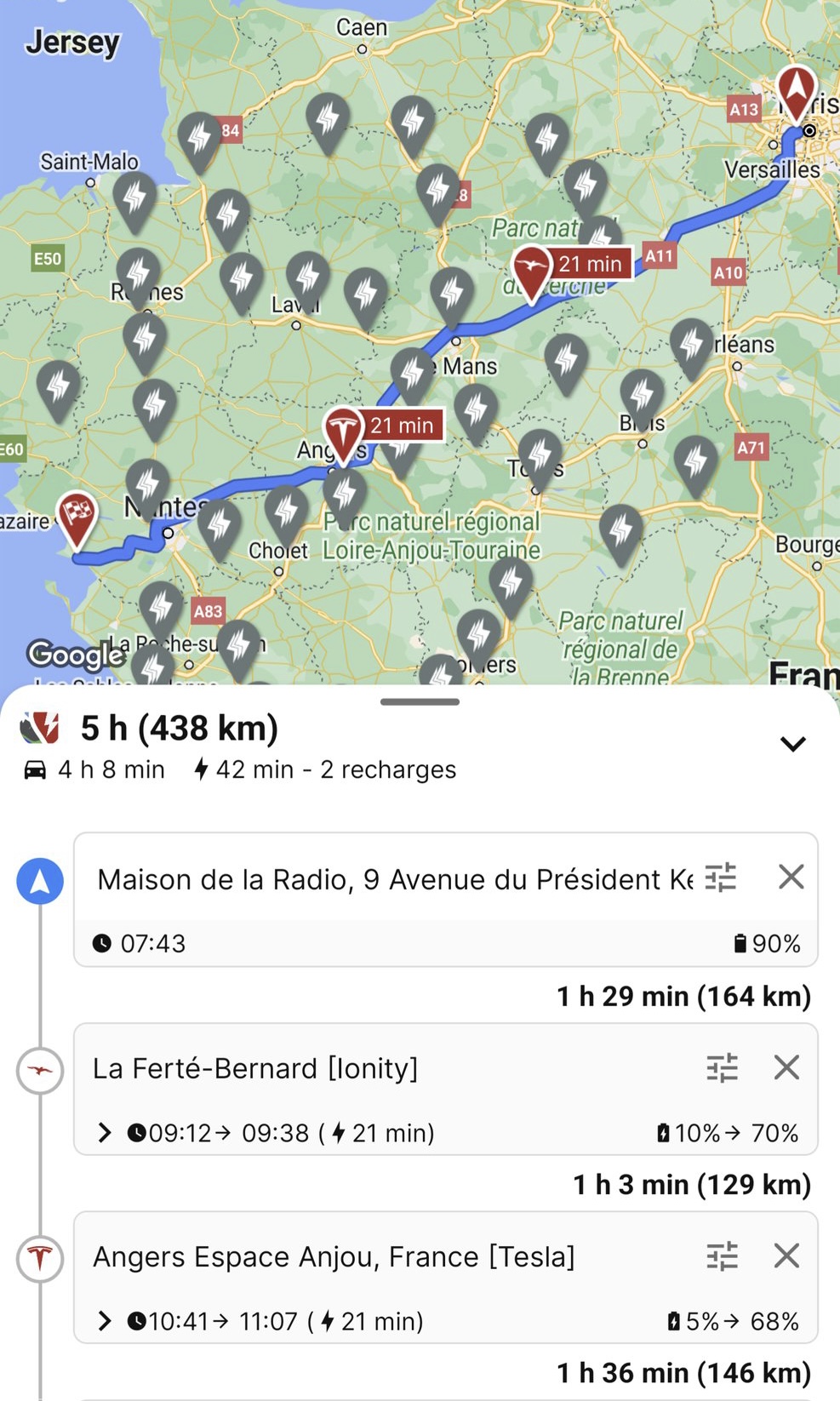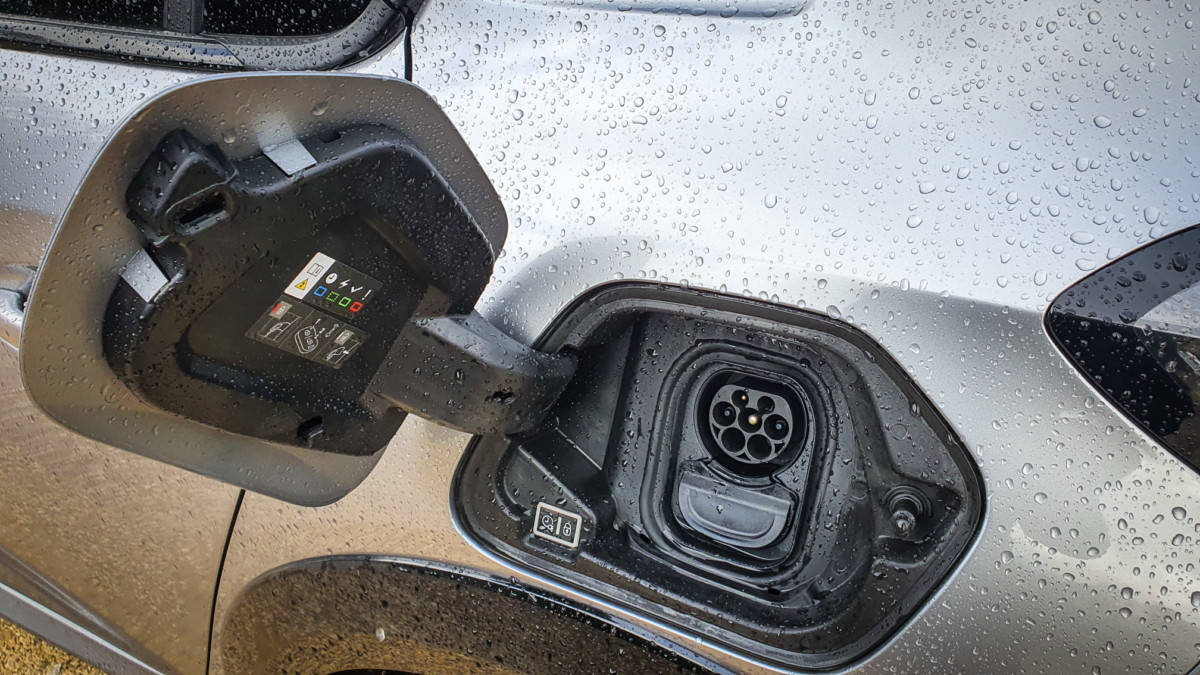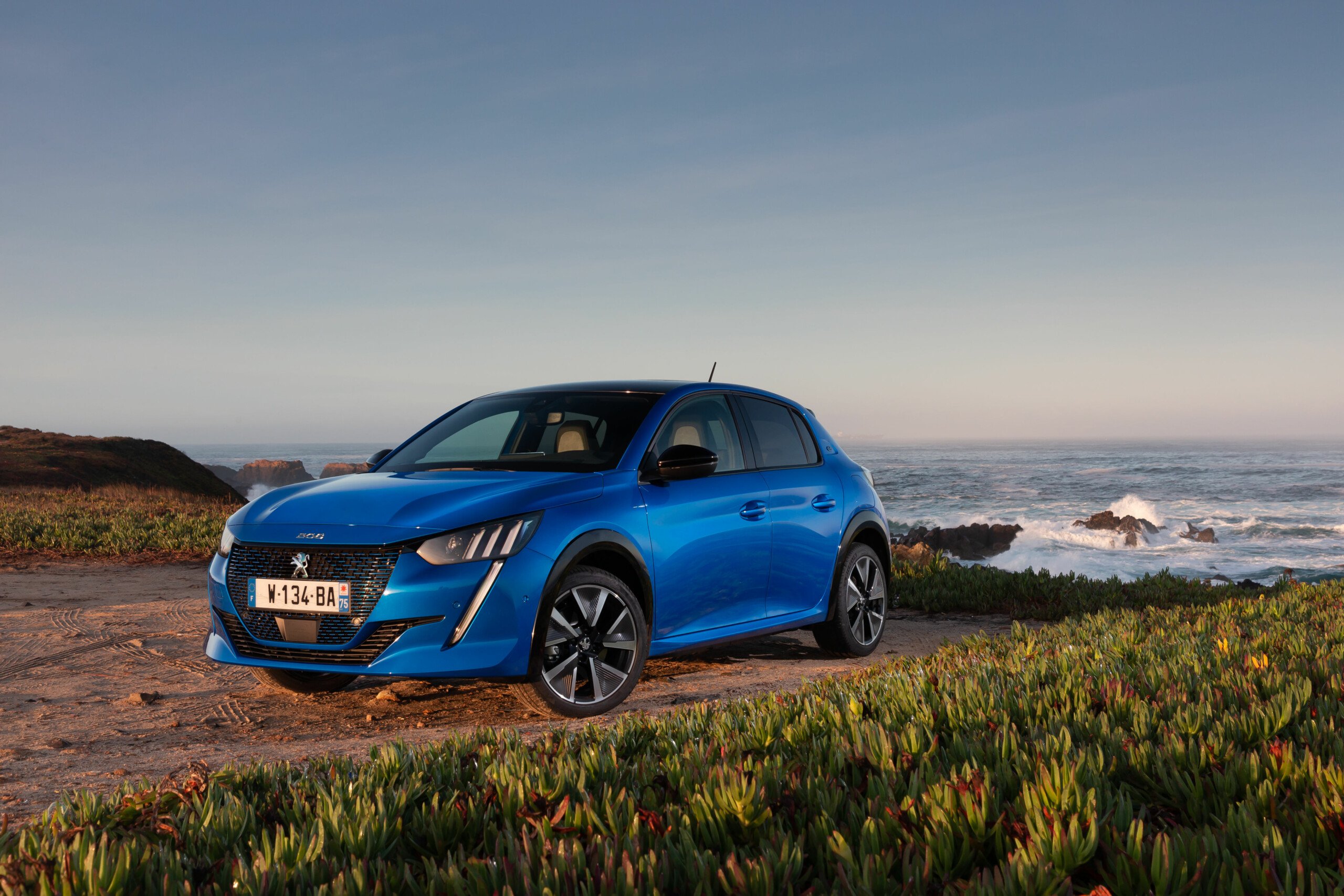The transition to the electric car generates its share of myths and misunderstandings, especially when it comes to long journeys. Prejudices die hard, and a recent Franceinfo article raised more questions than it answered. Let’s take a look at this case to separate fact from misinformation and shine a light on what a long electric car journey in 2023 really is.
“To find out if the electric car is compatible with long journeys, if it is more profitable than a petrol vehicle, Franceinfo took the road for vacation. A journey of 450 km between Paris and Pornic, in electric, over the charging stations. “. The subject of long journeys in an electric car comes up every summer in the mainstream media, and it’s always a delicate subject. However, at a time when electricity is becoming widespread, errors of judgment and misinformation on the subject are less and less excusable.
Rethinking our journeys in the electric age
Good plan Refill
Benefit from a 10% discount on the cost of your top-ups, directly deducted from your next bills.
The transition to electric is not a simple change of fuel, but a revolution in our driving habits. Trips must be planned differently, with the need to plan stops for battery recharging.
It might sound daunting, but thankfully many brands today are integrating smart trip planners to make this task easier. Tesla, Volvo, Renault, or even German manufacturers, all offer this functionality. But this is not the case with all electric vehicles.
However, an embarrassing element emerges from the Franceinfo article: “For 600 km, I have six hours of charge, so three stops. It’s a lot. There, I have been waiting for almost an hour and 20 minutes so I take care of myself, I drink a coffee, I eat”. This figure is surprising, and far higher than the estimates provided by the free application A Better Route Planner (ABRP), which recommends 2 recharges for a total of 42 minutes for a journey of 438 km. What could have happened to cause such a difference?
Understanding Charging Limits
A first track is the lack of knowledge of the principles of recharging electric batteries. ABRP recommends loads of 70% maximum to optimize travel time. This is because the last few battery percentages take longer to charge, so it’s more cost effective to charge to 70-80% max, then go back and aim for a 5-15% discharge before the next recharge.

The error here is therefore to try to recharge the battery completely at each stop, which is not optimal for long journeys.
An extraordinary experience?
“After eight hours on the road, without counting the traffic jams, the destination is reached: Pornic. (…) From a financial point of view, the amount spent on recharging is almost the same as a full tank of gas.“.
Once again, these figures are surprising and do not reflect the reality of the majority of electrical conductors. The travel time is too long, and the cost of recharging should not normally equal that of a full tank of gas.
The big question everyone is asking is, how much does it cost to charge an electric car? The answer is difficult to provide, since it depends on many parameters, and in particular the cost of recharging each network (Ionity, Tesla, TotalEnergies, etc.). We have already provided part of the answer, by comparing the price in each network.
What you have to remember is that you have to count between 5 and 16 euros for 100 km when recharging at a station, on a motorway journey. To be compared with the 3.5 euros for a home recharge, and the 12 euros per 100 km on average for a thermal car. We offer a whole series of articles on this subject.
The influence of the vehicle on the experience
An important element to take into account is the vehicle used for the trip. The electric Peugeot 208, which seems to be used in this test, is not specifically designed for long journeys, but rather for urban use. It does not seem to have fast charging and it does not seem to have the CCS charger option either.

These limitations, typical of the first generations of electric vehicles, are no longer representative of current electric cars, which offer increased range, reduced charging times and efficient trip computers.
Misinformation or shoddy work?
The France Info article sparked reactions on Twitter, with some accusing it of misinformation and bias. Beyond these accusations, it is regrettable to see such confusion on a subject as important as electric mobility. Trying the experiment with a Peugeot e-208 or a Renault Zoe can be a trap, and the France Info journalist clearly fell into it.
Electric is the future of mobility, and it is crucial that information on this subject be accurate and reliable to allow everyone to form an informed opinion. Finally, a poorly prepared and poorly documented anecdote should not be used as a reference to evaluate the performance of electric cars on long journeys. It is true that the network is just sized for the busiest periods and that charging station deployments must continue to closely follow electric car sales.
Multiply the sources of information
If you are considering the purchase of an electric car, we advise you to multiply the sources. You will thus be able to read concordant testimonials from colleagues who have also gone on vacation in an electric car. For example that of Garage, Cars and Rock’n Roll.
In short, everyone will judge in his soul and conscience where he puts the cursor between financial considerations (initial investment, long-term savings), minor annoyances and climatic emergency.
Also, let’s keep in mind that we are still in the infancy of the era of the electric car. We can expect many innovations in range and fast charging in the near future.
Do you use Google News (News in France)? You can follow your favorite media. Follow Frandroid on Google News (and Numerama).
